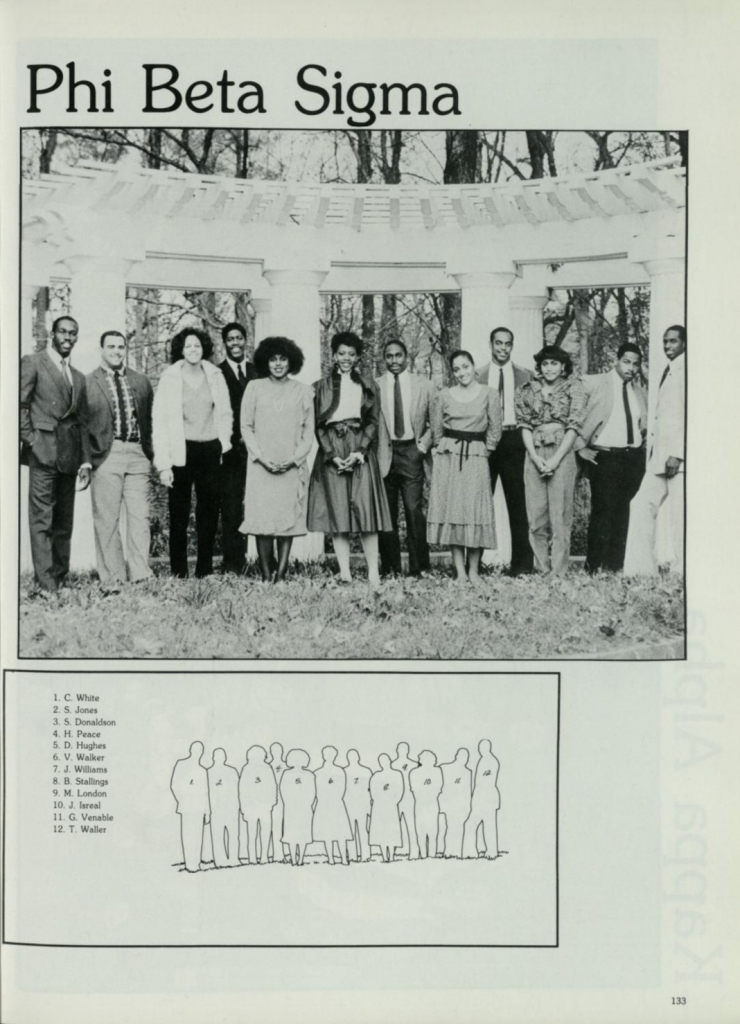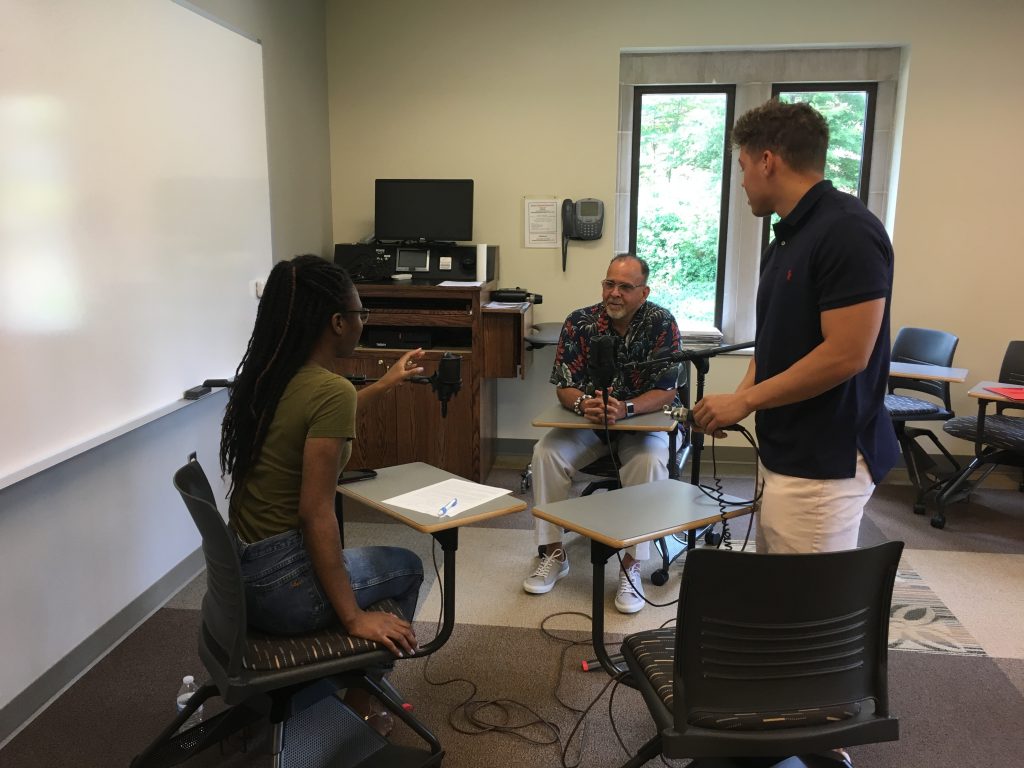by Ayele d’Almeida
Ayele d’Almeida is a Political Science and Leadership double-major from Bloomington, Minnesota. Her work at Common Ground, the University of Richmond’s social justice initiative informed her decision to pursue the Race & Racism Project as a summer fellow. She hopes that through her fellowship and continued connection with the project, she will learn more about the University of Richmond. Ayele believes that the Race & Racism Project will also help later in life – as the project forces her to question institutions she may benefits from. She hoped to focus her research on black faculty and the presence of black students in white-dominated clubs and spaces.

My second blog post this summer focused largely on questions of social spaces. I wanted to look at whether or not the absence of adequate and inclusive spaces forced black students to seek options outside of the University of Richmond campus. From what I have gathered from my oral history interviews with black alums, many black students went home to spend time with their families on the weekends. Social events consisted of small gatherings in the basement of Thomas Hall, a residence hall on campus. When Phi Beta Sigma, the University’s first black fraternity came to campus, social events were hosted by the fraternity in conjunction with the Student Organization for Black Awareness (SOBA).
The absence of major social outlets resonated with my current experience as a University of Richmond student. I did not realize how similar these experiences were until I thought about the scarcity of social spaces for black students. Because of the Greek life-dominated reputation our campus holds, social events are harder to attend as they are largely Greek life-affiliated or specifically, white Greek-life dominated. I see another parallel with the Black Student Alliance (BSA) usually being the host for events on campus. From social events to fundraising, to voicing one’s opinions in a safe space, the BSA provides black students with a home base.

Much of my interview content with Stan Jones (R’83) had to do with the reactions black students faced when going into white-dominated spaces. In my audio piece final piece, [which will be available on memory.richmond.edu in October] I tried to focus on the feeling of social isolation in those spaces. My podcast includes clips and examples of instances where my interviewee sensed that his presence and the color of his skin made others uncomfortable. I believe that the content in the podcast is important and directly relates to experiences that current students have. My piece also discusses negative stereotypes that come with being a black student at a predominantly white institution. Subjects expressed frustration with the fact that they were seen as less intelligent, or even aggressive because they were black men on the football team. Many of my interviewees discussed the idea that black students have to always “be better” in order to not fall into preconceived notions or stereotypes that faculty, staff, or students may hold. In my particular podcast, Jones addresses the issue from the perspective of a student-athlete; a seemingly dominating and intimidating figure.
One of the many exciting surprises that has come with doing the Race & Racism Project has been the connections that many of us are having with black alumni. Because the percentage of current black students now is 6%, it is very comforting to know that there is a larger community for us to connect with – especially when it feels like only the current group of black students can relate to experiences now. Although the percentage of black students in the 1970s was much lower, (with some alumnae reporting only 4 women in their class) it is exciting to know that over the years, future black UR students’ network will continue to grow.
Interviewing black alumni has been rewarding but has also put the current situation of the University of Richmond into perspective. There were several similarities as far as racial tensions in academic and social spaces, but I do think that the University has changed tremendously from an internal standpoint. By this, I mean that I do believe that black students feel a better sense of belonging. Lastly, doing our first group of oral histories has exposed us to possible interview subjects for later years. I look forward to seeing the list grow.
Ayele’s final podcast and the full oral history interview with Stan Jones will be available on memory.richmond.edu in October 2018–please follow us here and on social media (Twitter, Instagram, Facebook) to know when interviews go live.
